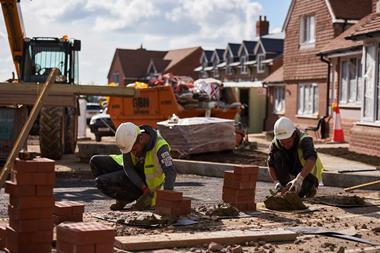A select committee on housing said today that the government must stick to its long-term house building targets despite the credit crunch but called for a greater proportion of homes to be social housing.
The communities and local government committee said it was concerned that the government would be unable to replace the £975m borrowed from its 2010-11 budgets to build social rented housing.
In the Housing and the Credit Crunch report MPs said the government should consider sanctions against lenders who repossess too quickly and do more to protect tenants and homeowners from ‘unscrupulous landlords’.
Committee chair Phyllis Starkey said: ‘The credit crunch has not reduced the numbers of households needing new housing, nor does it affect the need to address years of undersupply.
‘The message which we received from witnesses during our inquiry was clear: the steps the government is taking are welcome, but further action is needed if the government is to have a chance of meeting its targets for home building and achieving the goal of a decent home for all.
‘We are particularly concerned that the Government is borrowing from future budgets now with apparently no idea how it is going to restore that money at a later date.’
It also recommended that the government ensure the treasury revives the mortgage markets; increases construction of new social housing, accelerates refurbishment programmes for social housing, and ensures the purchase of unsold stock and street properties as well as unsold family homes.
The committee said the government should also make sure its low-cost home ownership offers are easier to understand and use, by reducing the number of schemes to three, covering shared-equity, shared-ownership and rent-to-buy.
RICS policy officer James Rowlands said: ‘Low levels of housebuilding are a serious issue that must be addressed alongside mortgage lending as part of the Government’s response to the economic situation. Current market conditions mean that the number of homes being built has fallen dramatically, as housebuilders are reluctant to develop if homes will not sell.
As a result, it is likely that the number of homes built in 2009 will be significantly below 80,000, well short of the Government’s target of 240,000. With private housebuilders reluctant to develop the Government must be looking to use the Homes and Communities Agency and housing associations to make up some of the shortfall. This will help deliver essential new units and prevent skilled workers leaving the housebuilding industry.’































